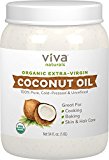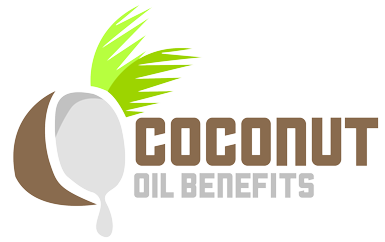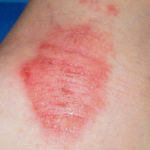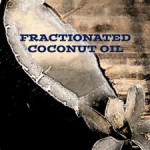
 Most people would jump at the chance for beautiful skin. So many of us are on the lookout for new products such as soaps, lotions, or oils to use as part of our skincare routine. Many people are also looking to find natural options that don’t contain harsh chemicals. One natural product which you might not have given much thought to is coconut oil, which smells great and is very affordable. These days you can find coconut oil available many places including websites like Amazon, natural food stores, and even in many grocery stores.
Most people would jump at the chance for beautiful skin. So many of us are on the lookout for new products such as soaps, lotions, or oils to use as part of our skincare routine. Many people are also looking to find natural options that don’t contain harsh chemicals. One natural product which you might not have given much thought to is coconut oil, which smells great and is very affordable. These days you can find coconut oil available many places including websites like Amazon, natural food stores, and even in many grocery stores.
Benefits of Coconut Oil
It may surprise you to learn that coconut oil is antifungal, antibacterial and can deep clean pores. Coconut oil is a wonderful body moisturizer as it can expedite hydration and reduce fluid loss in very dry skin. It smells wonderful and it can also be used on children for any dry skin areas they may have. For dry or itchy skin or if you have dermatitis you might want to apply virgin coconut oil (you can find these in jars or bottles) to the area. This also works great as a basic massage oil for the entire body. A bottle of extra virgin coconut oil is said to benefit eczema and can also soothe dry chapped lips and diaper rash. Pure coconut oil can assist with wrinkles and also benefit some skin disorders such as psoriasis (again it is important to do a skin sensitivity test first to a small area).
Does Coconut Oil Cause Acne or Make Existing Acne Worse?
When people ask if coconut oil will clog their pores, what most of them are really asking is if coconut oil will cause acne or make their existing acne worse.
Acne will affect most people at one point or another over the course of their lifetime. While it is most common among teenagers it can affect people of any age.
If you first understand what acne is you can better understand if using coconut oil on your skin is a good idea.
What is Acne?
Acne forms when sebum (oil from your skin), dirt, and dead skin cells clog up pores. This causes the bacteria Propionibacterium acnes, or P. acnes, to grow.
This bacteria, which is trapped, causes your white blood cells to attack it. The resulting skin inflammation is what leads to acne and the whiteheads, blackheads, and pimples that are associated with it.
Coconut Oil’s Impact on Acne
Coconut oil contains lauric acid which is an antimicrobial agent that can help kill harmful bacteria, fungi, and viruses in the body. In fact, lauric acid has been shown to kill P. acnes bacteria.
In one study, lauric acid showed stronger antimicrobial properties and was more effective at killing these bacteria than the popular acne treatment benzoyl peroxide. Coconut oil also has anti-inflammatory properties and has shown therapeutic potential against inflammation caused by the bacteria.
Coconut oil also contains capric acid, which is a medium-chain fatty acid. While capric acid isn’t as potent as lauric acid, but it also able to combat the bacteria that is responsible for acne.
This property only works when applying coconut oil directly to the skin, as this is where the acne-causing bacteria are found.
So Will Coconut Oil Clog Pores?
To answer the question: Will coconut oil clog pores? You need to think about your individual situation or skin type.
Most people will have no ill effects from using coconut oil on their face and skin.
However, some people report clogged pores or acne flareups after using coconut oil. The people who most commonly report having issues typically have super oily skin, suffer with significant acne problems to begin with, or both.
That being said, every person’s situation is unique. We all have different genetics and skin types. Dietary differences as well as different skin care products and regimes also play a role in influencing our situation. Cysts, pimples, blackheads, and whiteheads are often caused by different issues such as an accumulation of bacteria, hormones or dead skin.
So while most people who use coconut oil won’t have acne or clogged pores it might make sense to ease into using coconut oil at first to make sure that you are not in the minority of the people whose skin doesn’t respond well to coconut oil.
Ways to Use Coconut Oil
Before applying coconut oil to your skin for the first time, it is a good idea to apply a dab to a small area of skin, just to be sure that you have no allergies to it. Some people have food allergies that include coconuts and coconut oil. If you are allergic to coconut oil and put it on your skin you could have a reaction and your skin could become irritated. That is why it is best to apply it to a small area of your skin initially just to be sure.
There are several ways to use coconut oil on your skin. Here are a few of the more popular ways to use coconut oil.
Body Oil
If you skin is dry coconut oil can be a great remedy. After a shower instead of using your normal body lotion take some coconut oil in your hand and rub it over your body after a shower paying special attention to areas that tend to be drier than others such as your elbows or knees.
Face Wash
Referred to as “the oil-cleansing method,” coconut oil can be used to cleanse the skin. This is known as an extremely mild way of cleaning while using a totally natural ingredient. Usually, this is done right before retiring for the evening and there is no need to repeat this in the morning as you don’t want to over-cleanse which can cause irritation and block pores. To begin you simply need a washcloth soaked in hot water (you want it hot enough to open the pores). Then put about a half of a teaspoon size of coconut oil in your hand and gently massage on your face (if you are using solid coconut oil, use about the size of a dime). By doing this you will remove any makeup and dirt (so you do not need to wash your face before this procedure). Don’t rush through this but take a few minutes to massage this oil thoroughly into your skin and pores to ensure that any blackheads are eventually faded. When you feel confident your skin and pores are saturated, soak the washcloth in clean hot water (not so hot however that it burns your face) and remove the coconut oil. Rinse the cloth again in hot water, then hold the steamy washcloth up against your face to cover it and let it stay until the washcloth cools. Do this about two more times. If your skin feels slightly tight afterward, just dab a small bit of oil on your skin. Your skin will feel great after this and you will feel like you just went for a professional skin facial without the high cost!
Coconut Oil as a Makeup Remover
Coconut oil is a great option use for removing makeup or eye makeup without using harsh chemicals or soaps that could irritate your skin or eyes. Simply rug coconut oil on to the skin by hand or by using a cotton ball. Then dab off the makeup with a cotton pad or warm washcloth. In addition to removing your makeup the coconut oil will leave your eye area and the rest of your face moisturized.
Night Cream
If you want o keep your skin hydrated and healthy you can use coconut oil as a night cream. Simply apply a light layer of coconut oil on your face before bedtime and leave it on overnight.
If your skin is naturally very oily or if you are prone to acne you might choose to add a little coconut oil to your normal moisturizer in an effort to give your moisturizer a “boost” while avoiding any acne flareups.
Which Type of Coconut Oil Should You Use
 There are lots of things to look for when buying coconut oil in order to get the most healthy option. You should be looking for 100% natural organic extra virgin cold pressed coconut oil, which ironically is the same type you should be using in your kitchen. You can find some good options here.
There are lots of things to look for when buying coconut oil in order to get the most healthy option. You should be looking for 100% natural organic extra virgin cold pressed coconut oil, which ironically is the same type you should be using in your kitchen. You can find some good options here.
Remember that type of coconut oil is solid at room temperature, but melts at around 76 degrees. So it will start turning to a liquid as soon as you put it in your hands or begin applying it to your skin.
Image Credit: amareta kelly on Flickr







